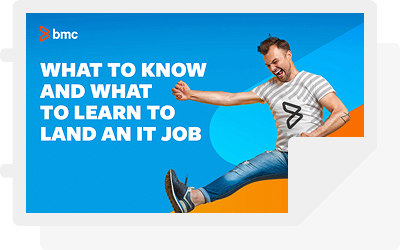Are you a Java developer looking to brush up on your skills? Java is the most widely used programming language—so it’s a great language to add to your skillset.
Of course, many resources available for free, like tutorials, online courses, tips, forums, blogs, and coding examples. These resources are beneficial, but don’t forget about good old-fashioned books. Books are an excellent resource because:
- They’re written by seasoned programmers who are credible authorities in the subject.
- Java books are more detailed and offer more in-depth subject knowledge than what’s free and online.
This article will dive into ten must-read books on Java that you can add to your bookshelf. These Java books cover various programming areas, including core Java fundamentals, frameworks, design patterns, and so much more. These books are excellent tools for all Java developers, from beginners to advanced users.
(This article is part of our Tech Books & Talks Guide. Use the right-hand menu to navigate.)
Head First Java
Authors: Kathy Sierra & Bert Bates
Audience: Beginners

The head-first approach of explanation is clear and concise for any reader. Head First Java addresses the essential Java programming subjects about class, object, thread, collection, and language features. The subject matter makes this book a Java Programmers bible and should be the first book worth investing in when building your Java book collection.
Java: A Beginner’s Guide
Author: Herbert Schildt
Audience: Students and novice programmers

We especially appreciate how this book engages students and beginners to think and understand Java concepts and ideas critically.
Effective Java
Author: Joshua Bloch
Audience: Devs needing a perspective shift

Head First Design Patterns
Author: Eric Freeman
Audience: Design pattern and OOP beginners

- The power of design patterns
- How they solve many common problems
- How to apply a design pattern
- The benefits they provide in Java
- Many helpful tips
Part of the Head First series, this book also contains many useful tools like exercises and memory maps, leading to a faster understanding of design patterns. This book is an excellent first step if you are looking to learn core Java design patterns and object-oriented design principles.
Spring in Action
Author: Craig Walls and Ryan Breidenbach
Audience: Intermediate to advanced Java programmers

This book can be challenging to comprehend if you are a beginner, especially if you are not familiar with specific Java topics. Spring in Action is best for advanced Java programmers and an excellent resource as you grow and develop your skills.
Clean Code
Author: Robert C. Martin (aka Uncle Bob)
Audience: Developers with working to advanced Java knowledge

- Section 1 addresses the patterns, practices, and principles of writing clean code.
- Section 2 details several case studies of ascending complexity, showcasing code cleanup exercises.
- Section 3 contains a list of heuristics gathered while creating the previous chapters’ case studies.
Clean Code can help a Java developer build their knowledge base of clean code for the Java programming language.
Test-Driven: TDD and Acceptance TDD for Java Developers
Author: Lasse Koskela
Audience: Intermediate to advanced Java devs

Test-Driven delivers hands-on examples for you to test drive Java code. This book also defines acceptance test-driven development, the Fit framework, and testing Java EE components: JSPs, Servlets, and Spring Controllers.
Core Java Volume I: Fundamentals
Author: Cay S. Horstmann
Audience: Programmers seeking robust but maintainable code

- Exception handling
- Interfaces
- Lambda expressions
Core Java highlights simple language, consciousness, and detailed example that is valuable to any Java programmer. This book will assist a programmer in developing an ability to write highly robust and maintainable code.
Java Concurrency in Practice
Author: Brian Goetz
Audience: Advanced devs

This book is essential to developing a strong understanding of concurrency and multithreading. Some book sections can be challenging to comprehend, but the concepts—concurrency and multithreading—are themselves tricky.
Thinking in Java
Author: Bruce Eckel
Audience: Intermediate to advanced Java devs

Still, this book is considered one of the most complete books in Java, so you can use it as an excellent reference at any stage of your programming career.
Learn Java with books
Many vital resources can kickstart your Java journey. These books may be a great way to start learning more about Java and can create a roadmap for a developer at any level of learning Java.







